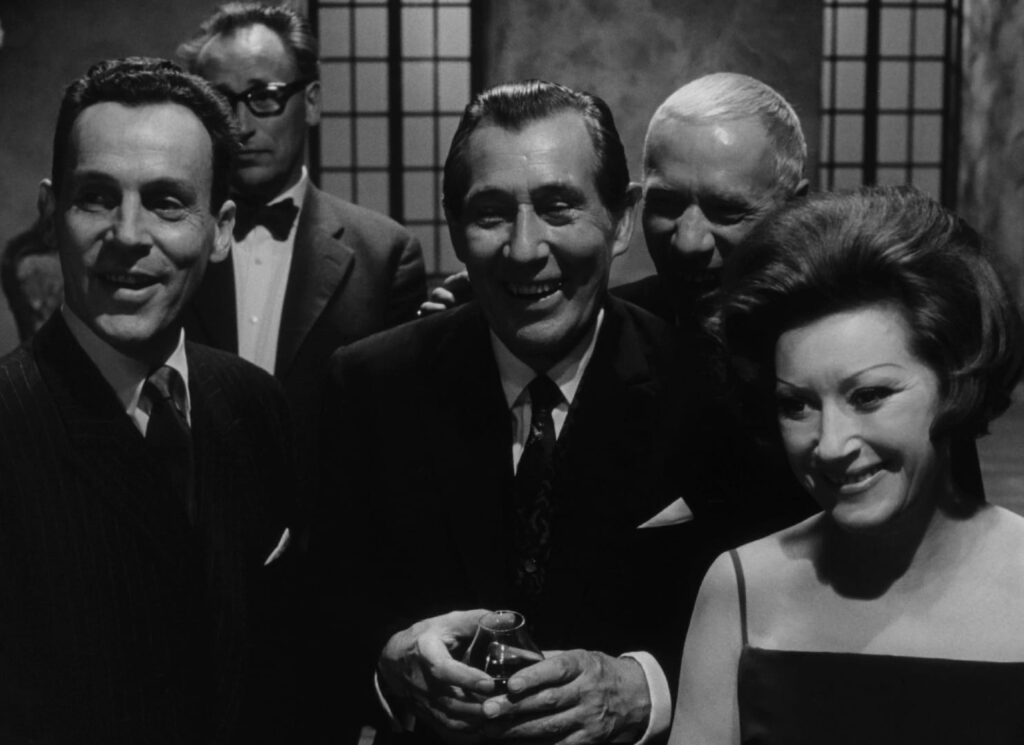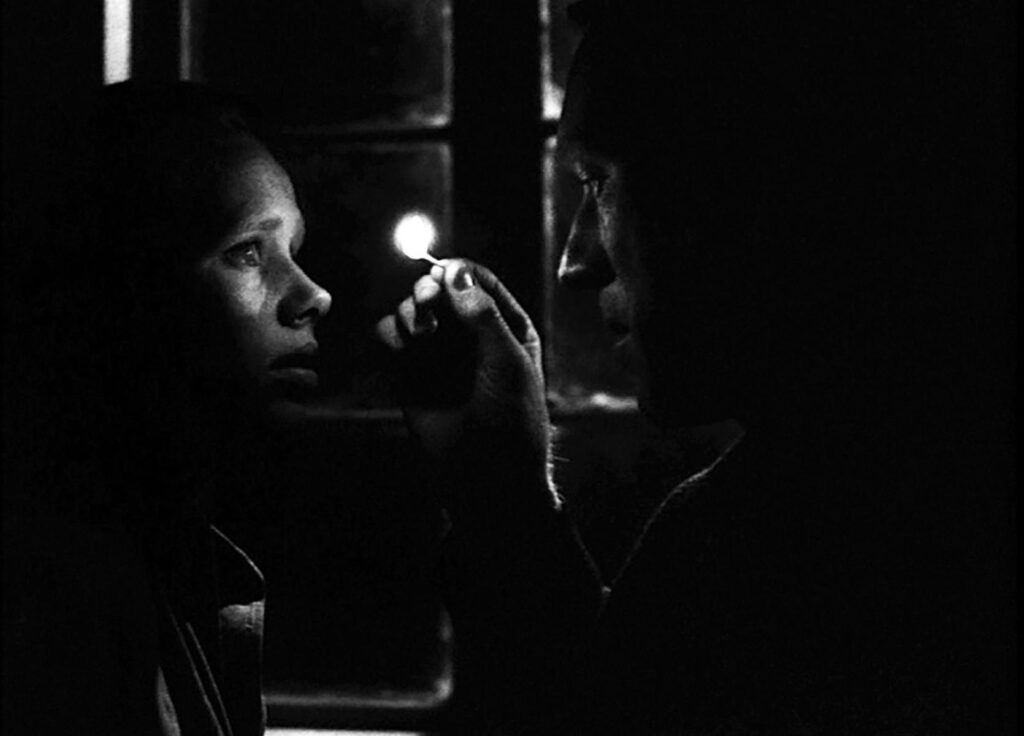|Jake Rudegair|

Hour of the Wolf plays at the Trylon Cinema on Sunday, October 5 to Tuesday, October 7. For tickets, showtimes, and other series information, visit trylon.org.
In your nightmare, the dinner guests are ghouls (all but one of course, sweet Alma). They’re frocked up in tailcoats and ballgowns. They chat over each other, so you only catch shards here and there. “Bureaucratic vengefulness.” “Humiliation.” “The pus never ceases to flow.” Candles decay in tarnished sconces and the food tastes like iron, the wine too. After dinner, you and Alma are treated to a puppet show. The puppets look awfully real, miniature prisoners. When it’s over, the gray eyes of the bourgeoise bore into you. They want you to speak. So you do:
“Forgive me,” you say, “I call myself ‘artist’ for lack of a better term. In my creativity, nothing is self-evident, except the compulsion to carry on. Through no intent of my own, I have been singled out as something special, a five-legged calf, a monster. I never strove for that distinction, nor do I strive to keep it. But by all means, I have felt megalomania brush across my brow. I believe myself to be immune. I need only for a moment to consider the insignificance of art in the human world to be brought back down to earth. However, that doesn’t inhibit the compulsion.”
What else is the artist but a five-legged calf? If you couldn’t tell, you’re in an Ingmar Bergman film. Hour of the Wolf, to be precise. It’s a non-place, where fear and tenderness, yearning and violence, fire and sea swirl together like oil paints. An island inside, populated by all the loathsome selves vying for control. Just don’t fall asleep again.
This world is trying to tell you something. Critics would size you up as an unravelling artist whose grasp on reality is slipping away. Does that feel right to you? Has your “compulsion” to create unleashed an egoic diaspora? Is your very self splitting like an atom, hurling forth into the waves and the swamp, the forests and closets and beaches of the mind? Are all the ghouls just you, stabbing at the jugular (Birdman), searching for some morsel of love, or lust, to be the binding agent to make you whole again? Or is total self-destruction the goal? You tell me, it’s your psyche, I’m just spitballing here.
However you slice it, the film you’re trapped in is a true mise en abyme, a frame within a frame. Who’s telling this story, anyway? You? Or Alma, speaking directly into the camera, narrating your chilling journal entries, suffering your violence? Are you the puppet in the delicate little box, straddling the flames, singing outside the gates of Duat? Or the dolled-up shadow in stained glass?
Frame or no frame, you’re cowed by your compulsions—to molest, to frighten, to kill—at every whim. Compulsion dangles and drags you, swelling and receding with the tide, like waves pitching a rusted fishhook.
Then again, is any of this actually happening? Alma seems to think so. How dare you frighten her so, the only person who gives a single care for your soul. I won’t even mention act three, but needless to say, you should be ashamed of yourself.
You are me, aren’t you?

Again, Alma would have my back on this one. She contemplates the old lovers who, over time, begin to share the same thoughts, the same facial expressions. It would seem that your artist creator obsesses over this, too. Persona, of course, but even Cries and Whispers or Through a Glass Darkly are all grappling with the fusing of souls over brutal time, recognizing how this thing we call “self” gets wobbly. Does he think that this coupling selfhood is a natural, even healthy, process? So what happens when we (you, I) break apart on the inside? The shattering of the mirror, as it were. What do the shards reflect?
You/I are bubbling over with questions, aren’t we? I don’t think Hour of the Wolf is too hung up on clarity, though. In art, clarity is overrated anyway. Don’t I think?
I think you/I will find a way to enjoy this particular nightmare. Maybe it’s the film equivalent of a root canal. In a good way? The scooping out of dead nerves is unpleasant, but perhaps that’s one of Art’s primary functions. To look inside, assess the rot, let the ugly, foul, wretched, petty, furious little parts be expressed, if only so they don’t fester.
If our world is a nightmare, perhaps we’ll forget when we wake, the specters slipping below the waves again, sinkers in the abyss. If we hold onto nothing else though, let’s try to remember which hour is the most difficult, when the dark is at its fullest.
“Old people used to call it ‘the hour of the wolf’… when the most people die, when the most babies are born. It’s the hour when nightmares come to us.
And if we are awake— we are afraid.”
Edited by Finn Odum
